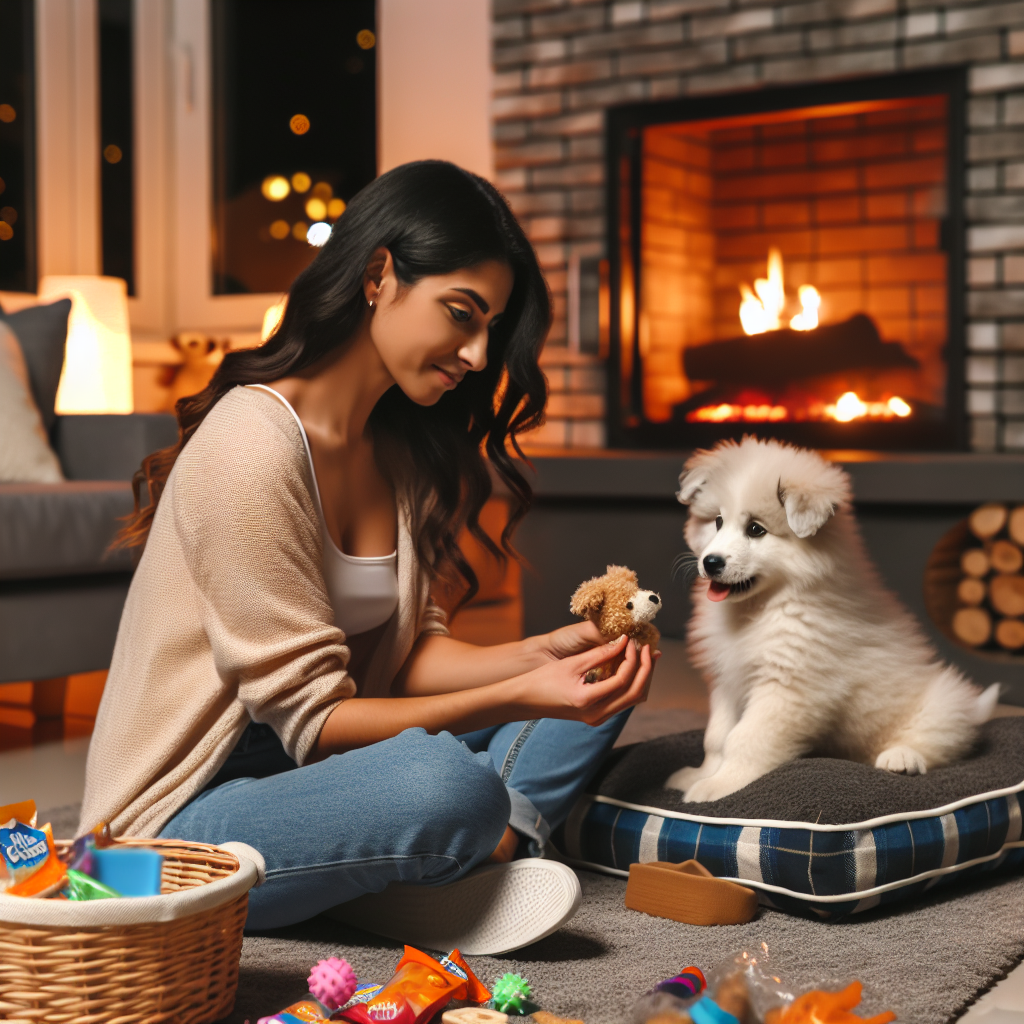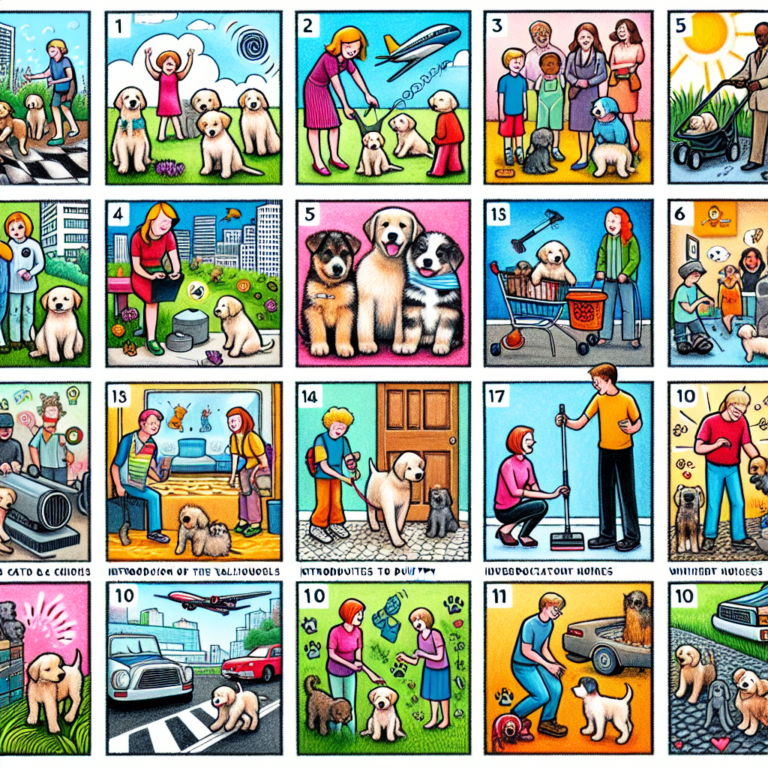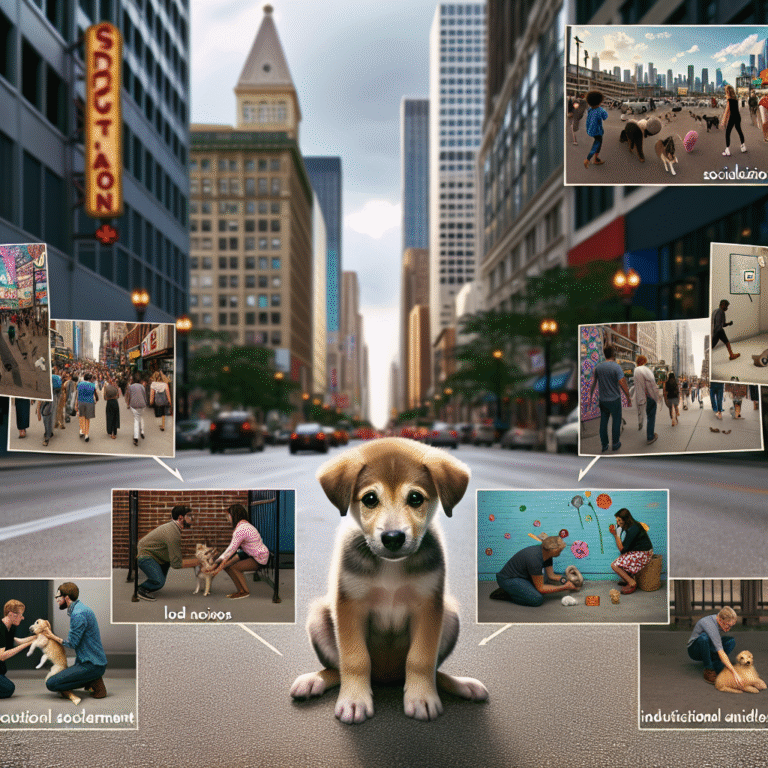Socializing your puppy is critical for their emotional and social development. Puppies that are not properly socialized may become fearful or aggressive in unfamiliar situations.
However, socializing a scared puppy requires patience and understanding, employing gentle training methods to help them overcome their fears.
Understanding Fear in Puppies
Puppies express fear through various behaviors such as trembling, hiding, or excessive barking. These signs can be rooted in genetics, early traumatic experiences, or simply a lack of early exposure to different environments. Understanding these causes helps in developing effective strategies for easing their anxiety.
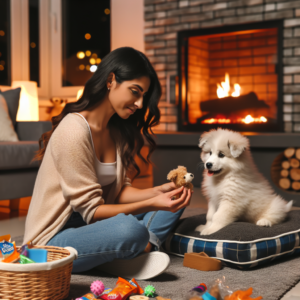
Preparing for Socialization
Start by creating a safe and welcoming space for your puppy, reducing their stress as you embark on the socialization journey. Ensure you have all necessary supplies like treats, toys, and a comfortable bed. Setting realistic expectations with a flexible timeline will make the process less daunting for both you and your puppy.
Gradual Exposure to New Experiences
A gradual approach is key to successful socialization. Introduce new sights and sounds slowly, and opt for calm and controlled environments such as quiet parks. This method helps reduce the fear of overwhelming stimuli and encourages positive associations.
Positive Reinforcement Techniques
Positive reinforcement involves rewarding your puppy for calm and brave behavior, strengthening positive responses to new experiences. Use treats, praise, or playtime as rewards, making sure your timing is immediate and consistent, as this helps your puppy understand which behaviors are desirable.🐶
Building Confidence Through Play
Interactive games are excellent tools for building your puppy’s confidence. Encouraging safe exploration and curiosity can be facilitated through puzzle toys and brain games. These activities not only mitigate fear but also stimulate mental growth.
Socializing with Other Dogs
Choosing well-socialized “role model” dogs can help guide your puppy in learning social cues. Supervise initial interactions closely to ensure safe and positive encounters. Group classes and playdates can further enhance social practice in a controlled environment.
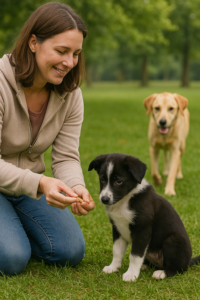
Handling Setbacks and Progression
It’s important to recognize signs of stress such as cowering or retreating during socialization. Should you encounter setbacks, adjust the pace and approach, giving your puppy time to acclimate. Celebrate each small victory, as these positive reinforcement moments build confidence over time.🐾
Consulting Professionals
Professional help might be necessary if fear-related behaviors persist. Qualified trainers and animal behaviorists can offer tailored strategies and solutions. Group training sessions may also provide structured environments that promote learning and socialization.
According to Dr. Sophia Yin, a renowned animal behaviorist, “The most important thing owners can do is to expose their pets in a positive manner to variety during the sensitive period for socialization.” This emphasizes the significance of controlled exposure and professional guidance.
FAQs About Fearful Puppy Socialization
Addressing common concerns such as traveling with an anxious puppy is crucial. Each puppy is different, so the time required for socialization can vary widely. Patience and consistent effort are essential in nurturing a well-adjusted pet.
Conclusion
Gently socializing a scared puppy involves strategic and empathetic efforts. By using gradual exposure, positive reinforcement, and patience, you build a trusting relationship with your furry friend. Always remember, consistency is key in reinforcing confidence and calmness.
Additional Resources
Consider reading materials from respected trainers like Cesar Millan or websites such as the American Kennel Club for further guidance. These resources provide valuable insights into effective puppy socialization techniques. Contacting professional trainers or behaviorists is also advised if needed.

